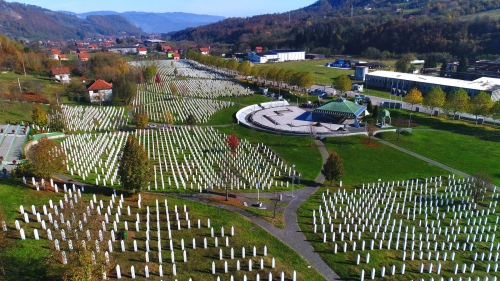Sierra Leone: A Strong U.N Could Spare the Lives of Thousands
Last July, President Ahmed Tejan Kabbah of Sierra Leone was seen shaking the hand of Foday Sankoh, a rebel leader and a man of no virtue. Africa and the world applauded, with no apparent enthusiasm, and news agencies reported on the peace treaty, describing it as the end of eight years of civil war. Again, the world's eyes are centered on Sierra Leone as the rebels once more cut loose, wreaking havoc in Freetown's neighboring areas. A familiar scene is back in one of Britain's most treasured former colonies in Africa. Death and destruction are shadowing Freetown, only one year after the end of its most gruesome battles.
Once a conflict breaks in almost any African country, the international media focus on that part of the world. It should be noted that interest in the conflict fades as most foreigners are evacuated. Although the conflict never ceases, the world grows careless, and their plight becomes irrelevant. Sierra Leone was never an exception. Have you asked yourself why images of the Sierra Leonean turmoil are becoming more visible on your TV screen, although the intensity of the current fighting is incomparable to the genocide of eight years of war witnessed by the war-torn nation? It is the presence and direct involvement of the United Nations peacekeepers who have generated this unexpected attention to Sierra Leone.
I am almost glad UN forces were directly involved in the battles near Freetown. This feeling by no means stems from the fact that 500 UN peacekeepers were taken hostage, but from the fact that if UN troops were not involved, the world would pay little attention to the crisis in Sierra Leone. The rebel group The Revolutionary United Front (RUF), in an inconsistent and fragile alliance with the Allied Forces Revolutionary Council (AFRC), killed tens of thousands of innocent Sierra Leoneans in recent years. Beginning in January of 1999, a change in tactics was witnessed, when both RUF and AFRC began amputating body parts of Sierra Leoneans, mainly in Freetown. Special camps now stand on the outskirts of Freetown, where the amputees reside. Reports speak of men, women and children, even infants who have lost hands legs, noses and ears.
And because Sierra Leone is part of Africa, the world shows little sympathy. In fact, the Associated Press reported the country had only 2 psychiatrists to treat all of the country's people who suffer from indescribable physical and emotional scars.
President Kabbah was urged to accept a peace deal with the same rebels who destroyed the country, only six months following the RUF killing of over 5,000 innocents in Freetown. It was indeed the ugliest definition of peace to be implemented in our time. Sankoh, proudly signed the treaty, and then, in a well choreographed embrace, he "reconciled" with a helpless Kabbah.
Perhaps the worst outcome of the July peace accords was the withdrawal of the Nigerian lead West African intervention forces. The troops successfully fought the rebels and overthrew the Junta government, constituted by the AFRC. The African troops were replaced by the UN peacekeepers, well armed and equipped. However the U.N soldiers could not even defend themselves as RUF rebels robbed them of everything, including their clothes. It was clear that the UN troops weren't sent to fight, but to represent a symbolic gesture that the "international community" is doing something. Sierra Leoneans and government officials expressed their deep disappointment in the United Nations. Others are said to be pleading to British forces to stay and defend the trembling city as the rebels stand at the borders. General Charles Gutherie, Britain's Chief of Defense however, proclaimed in his recent stop in Freetown that the objective of the British mission is unchanged, and that is to provide safe evacuation of its expatriates from Freetown.
With the UN's ineffective presence, and Africa's inability to take a major stand on such issues, (especially in conflicts that require quick intervention) President Kabbah had to desperately turn to an ex-Junta leader and his rebels. Sadly enough, the AFRC rebels who entered Freetown in recent days as saviors, have themselves contributed to the deaths of thousands. Johnny Paul Koroma, the rebel leader, visited a camp for amputees and showed remorse, reports said. Will an apology be enough for the hacking off of the hands, legs and ears of small children?
The rebels quest for power is known to be an attempt to secure the diamond trade, which according to Sierra Leone's Justice Minister Solomon Berewa, is inspired by international firms. Their greed is the motive behind the RUF's merciless war against the government and civilians. Yet neither a so-called peace agreement nor a million agreements can change such a disturbing reality.
Regardless of whether the U.N involvement is motivated by self-interest and self-promotion, the outcome is a welcomed one, as thousands of innocent lives could be spared.

















